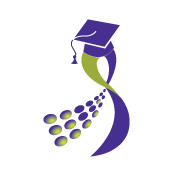Oncofertility Saturday Academies
 Oncofertility Saturday Academy (OSA) is a science program designed to engage a diverse population of high school girls to explore the basic science, clinical applications, and career options in reproductive science, cancer biology, and oncofertility. Funding for this project was launched by the Oncofertility Consortium (NIH 1 ULI RR024926-01, 1 U54 HD041847, and R25/RCA133836A) as part of the NIH Roadmap Interdisciplinary Research Consortia and is now supported by theCenter for Reproductive Health After Disease (P50HD076188) from the National Institutes of Health National Center for Translational Research in Reproduction and Infertility (NCTRI).
Oncofertility Saturday Academy (OSA) is a science program designed to engage a diverse population of high school girls to explore the basic science, clinical applications, and career options in reproductive science, cancer biology, and oncofertility. Funding for this project was launched by the Oncofertility Consortium (NIH 1 ULI RR024926-01, 1 U54 HD041847, and R25/RCA133836A) as part of the NIH Roadmap Interdisciplinary Research Consortia and is now supported by theCenter for Reproductive Health After Disease (P50HD076188) from the National Institutes of Health National Center for Translational Research in Reproduction and Infertility (NCTRI).
The Oncofertility Saturday Academy was founded in 2007 to expose high school students to laboratory and medical science research in the fields of cancer, fertility, and oncofertility in a university research environment. The first OSA program was established in 2007 at Northwestern University and now includes programs at the University of California, San Diego (est. 2008), Oregon National Primate Research Center (2009), and University of Pennsylvania (2010). By leveraging the individual strengths of each research program and institution, these programs have provided experiential learning opportunities for more than 200 high school students to date.
The Oncofertility Saturday Academy exposes high school students to the laboratory and clinical aspects of cancer and fertility. Exposure to basic science research includes laboratory learning experiences such as mouse ovary dissections, ovarian follicle encapsulation, DNA analysis, immunohistochemistry, in vitro fertilization, and developmental processes of sea urchins and frogs. Clinical learning experiences include performing breast and pelvic exams on simulation models, operating the daVinci surgical robot under the supervision of surgeons, and performing embryology techniques. Students also investigate the bioethics of oncofertility research and care through presentations of oncofertility research questions and discussions of case studies. Bioethicists facilitate and guide the high school students to apply an ethical framework to discuss the various perspectives connected to the field of oncofertility.
OSA consists of seven modules that navigate high school girls to authentically experience the translational nature of science. The first set of three modules focus on basic science research and the second set of three modules equips the students with an understanding of how basic science knowledge is applied to clinical medicine. The final module is for the high school girls and their parents/guardians to share experiences and communicate about science, academic programs and careers in science and medicine. OSA’s mission is to prepare and empower the next generation of women leaders in science and medicine.

